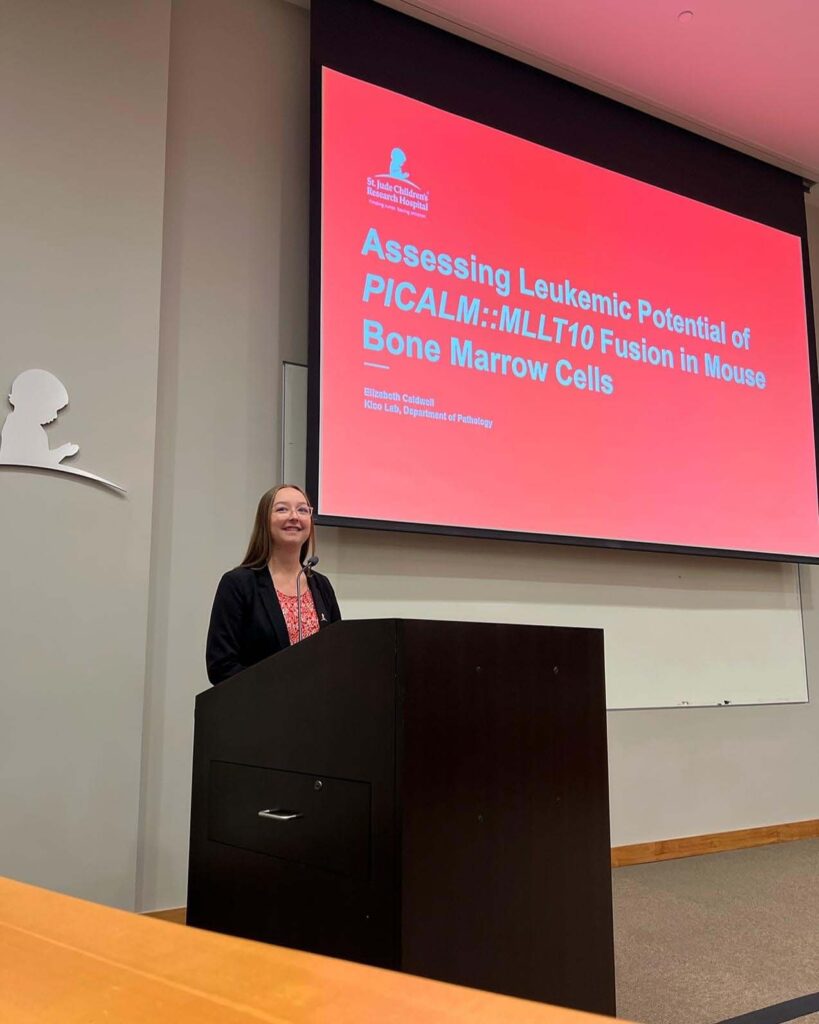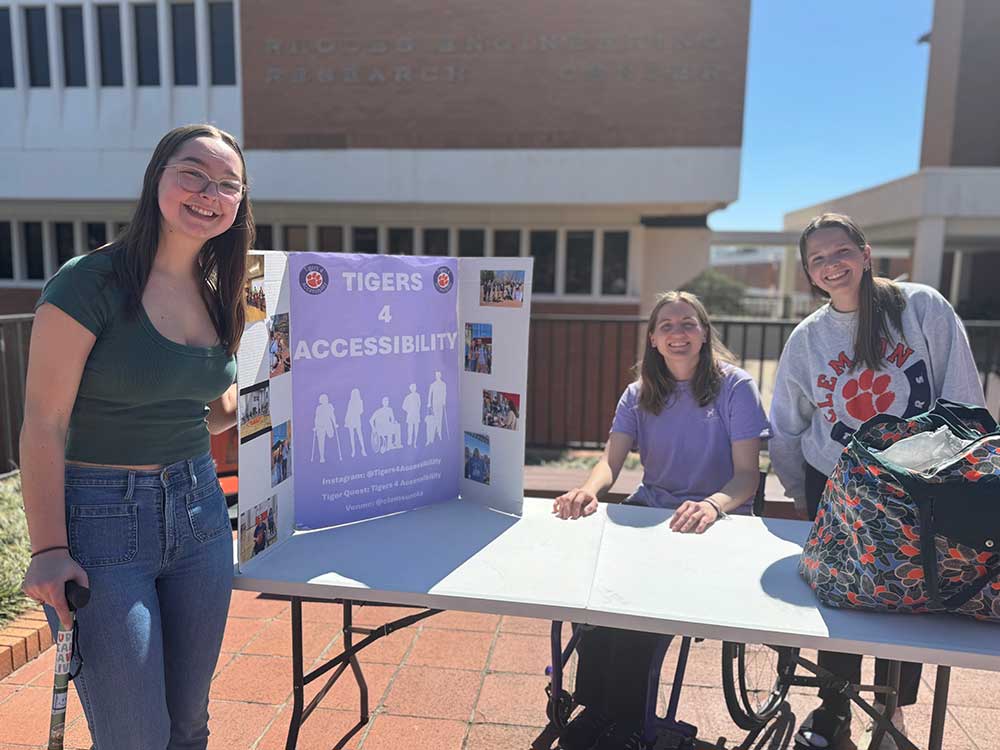When Elizabeth Caldwell first toured Clemson, she didn’t see herself as anything exceptional, but felt a strong pull to the University.
“I knew that this was my home and where I needed to be,” said Caldwell, who came to Clemson from Hendersonville, Tennessee.
An invitation to become a National Scholar — one of the University’s premier scholarship programs serving students who demonstrate a unique combination of academic excellence, intellectual curiosity and leadership ability — started to help Caldwell believe that she not only belonged at Clemson, but that she could become a force for positive change.
Caldwell was also announced as Clemson University’s Norris Medalist this spring, an award that recognizes a graduating student who, on the basis of exceptional scholastic achievement and leadership ability, is judged by the University Scholarships and Awards Committee to be the best all-around student.
Caldwell sees genomic medicine as a bridge between her studies and research at Clemson and her goals at Yale University, where she plans to study for a master’s degree in public health starting this fall.
Since her first year on the Clemson campus, Caldwell has worked with Michael Sehorn, associate professor of genetics and biochemistry, in his DNA Repair and Meiotic Homologous Recombination Lab. Sehorn invited Caldwell to join the lab while she was still in high school and met with her before her first day of classes at Clemson. During that meeting, Sehorn said he knew Caldwell was focused on becoming a physician. After a short time in the lab, however, he also saw her interest in research grow.
Caldwell credits her work in the lab with making her fall in love with research. As a result, Sehorn encouraged Caldwell to apply for the highly selective Pediatric Oncology Education (POE) Program at St. Jude Children’s Research Hospital.
“It is rare for the POE program to accept sophomore students into their program,” said Sehorn. “Elizabeth’s performance in that lab earned her an invitation to continue her research this past summer, resulting in a publication in the journal Leukemia.”
Sehorn noticed a clear change in Caldwell after her time in the POE program.
“At St. Jude, she saw how research could influence not only medicine, but also promote policy changes that directly affect public health,” said Sehorn. “I have no doubt that at Yale, Elizabeth will be well equipped to excel in genetics research and engage in building public policy without borders.”




In addition to her Norris Medal, Caldwell has received several other awards for academic excellence and advocacy work, including a Truman Scholarship, Clemson’s Matt Locke Leadership Award, the College of Science Outstanding Senior in Science Award and the Riley Institute’s Upstate Diversity Leadership award.
In the future, Caldwell plans to work at the intersection of medicine and health care policy, specializing in care for patients with rare genetic diseases implicated in both invisible and visible disabilities. This focus is rooted in her personal experience with Ehlers-Danlos syndrome, an understudied disorder that affects the connective tissue in her body.
When she was first diagnosed, Caldwell said her disability wasn’t visible. Over time, however, her mobility started to change. That’s when she started seeing a shift in what people thought she could achieve.
“I could tell that people significantly lowered their expectations of me versus when they couldn’t see my disability,” said Caldwell. “I thought, wait a minute. If I’m doing well so far and continue to try, I feel like I can really make an impact and accomplish even more than what I had originally planned for myself. It completely changed my mindset.”
Caldwell has since advocated for increased accessibility for all students on campus, serving as the only undergraduate student on Clemson’s Accessibility Commission. She also co-founded Tigers 4 Accessibility, the University’s first and only student organization dedicated to creating a more inclusive and accessible campus culture and physical environment for students with disabilities.
In her free time, Caldwell also advocates for patient health as a volunteer with the Clemson Free Clinic. Last fall, she assisted with the clinic’s recertification application. She also developed a Mobility Aid Program to help purchase medical equipment for patients, such as orthopedic shoes. Tigers 4 Accessibility raised more than $4,000 this semester in support of that work.
She has worked with the clinic’s Produce RX program, which offers fresh produce and nutritional education for clients. The program has seen a 30% increase in participation under Caldwell’s guidance.
As she starts looking ahead to Yale, Caldwell said she plans to carry forward the investment Clemson made in her to others.
“So much investment was made into me here, and I just want to keep supporting Clemson in whatever way possible to ensure that I can invest in students who also might not know what they’re capable of and could be making goals for themselves, based on having lower expectations of themselves,” said Caldwell. “Clemson will always be really special because it’s where I figured out who I am and what I want to do.”
Get in touch and we will connect you with the author or another expert.
Or email us at news@clemson.edu

